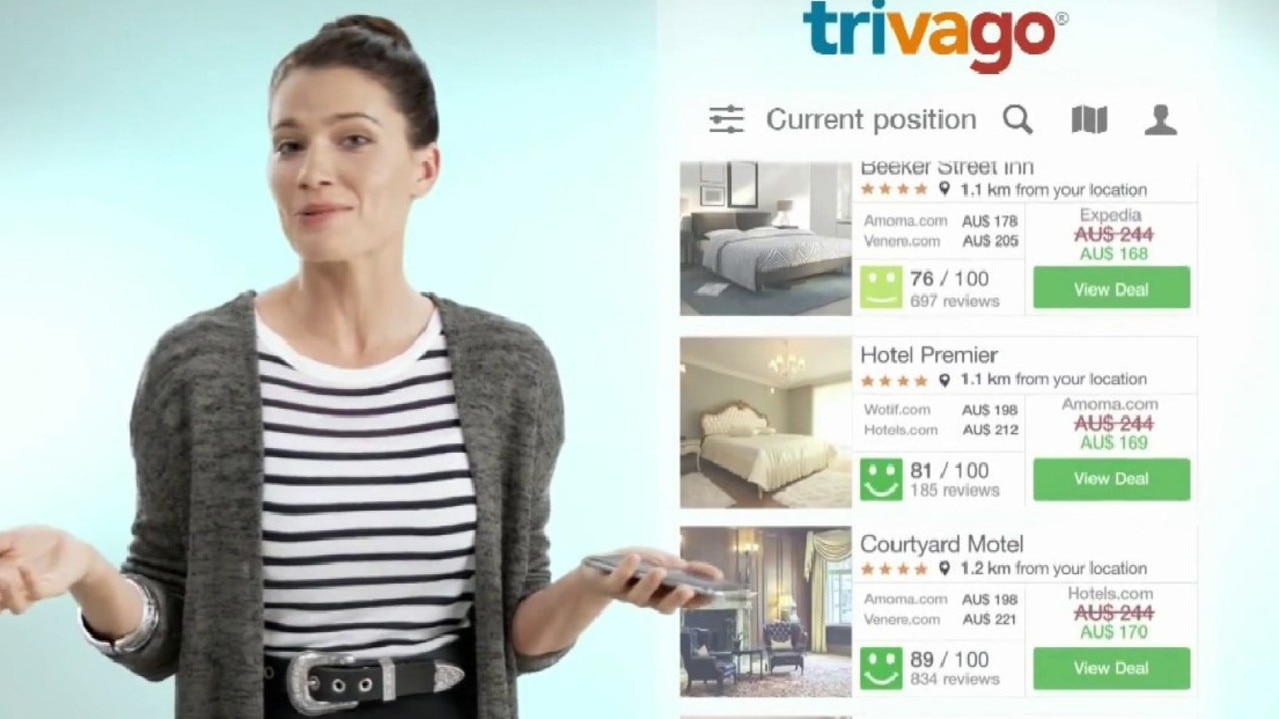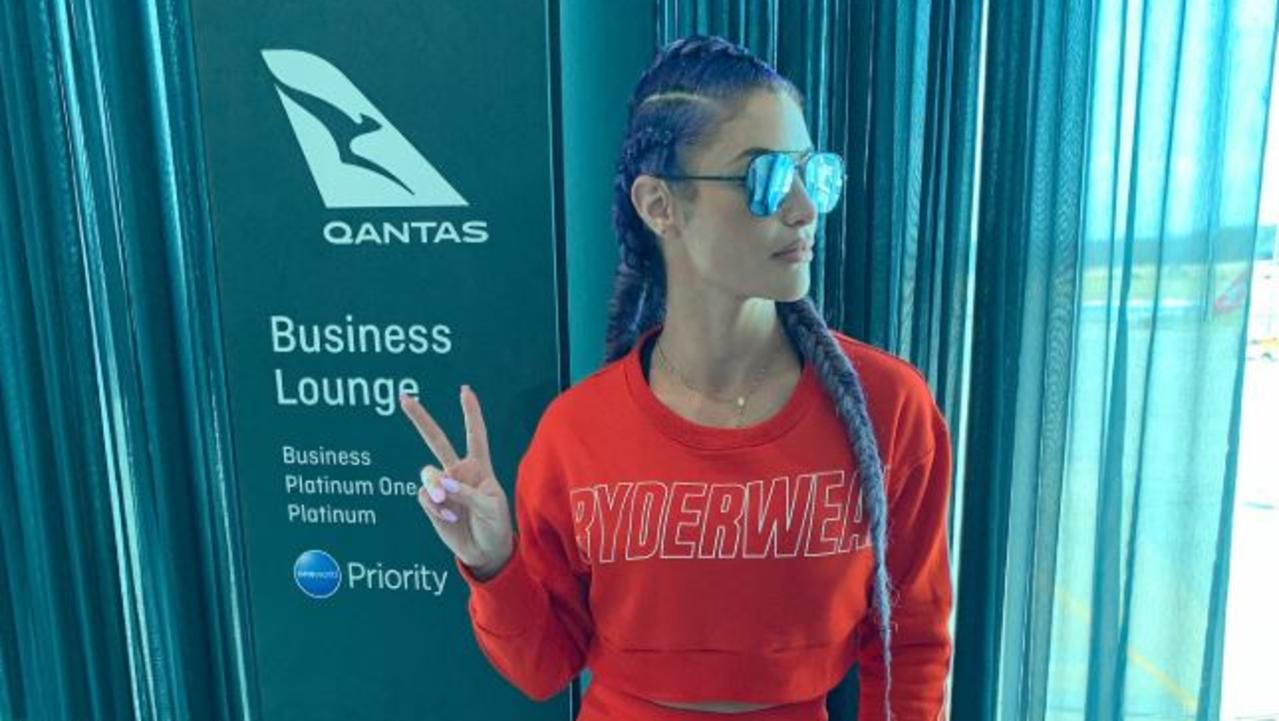Little milks, tiny Vegemites to be axed as Qantas goes waste-free
In a world first, Australian airline Qantas has made a shake up to the way they plan on flying passengers around the world.
Travel
Don't miss out on the headlines from Travel. Followed categories will be added to My News.
Plastic bottles, plastic-wrapped blankets, plastic cups, plastic cutlery, plastic stirrers, aluminium containers, disposable toothbrushes, and all topped off with umpteen paper towels. For anyone who is even remotely eco-conscious, the staggering waste that one passenger can produce on an average flight is pretty horrifying. Now, imagine a different kind of in-air experience, one without the guilt, where single use plastics and bulging rubbish bags destined for landfills are a thing of the past, and instead, compostable cups, food containers and cutlery, are the go. Well, if Qantas has its way, it’ll be a reality sooner than you think.
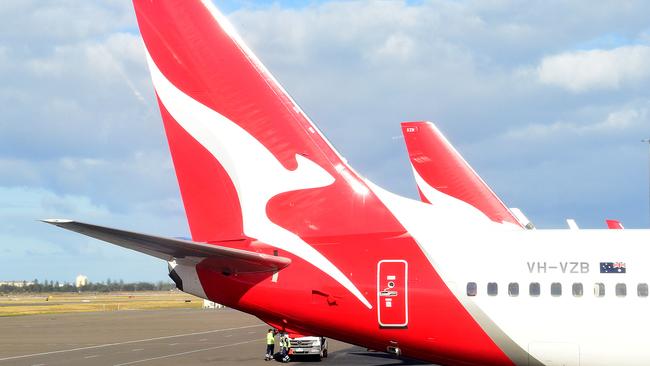
Yesterday, I was a passenger on what was touted as the world’s “first zero waste flight”. Yep, onboard Qantas Flight QF739 from Sydney to Adelaide, everything — and I mean everything — will be reused, recycled, or disposed of via composting, making it the first ever commercial flight to produce no landfill waste. And though a “trial” the landmark journey marks the first stage in the carrier’s plan to cut landfill waste by a whopping 75 per cent by the end of 2021, and to eliminate 100 million single use plastic items annually by the end of 2020.
THESE SEATS COULD CHANGE FLYING FOREVER
MENU MISTAKE THAT ALMOST BROKE QANTAS
‘PLUSH AF’: TRAVELLER’S HILARIOUS QANTAS REVIEW
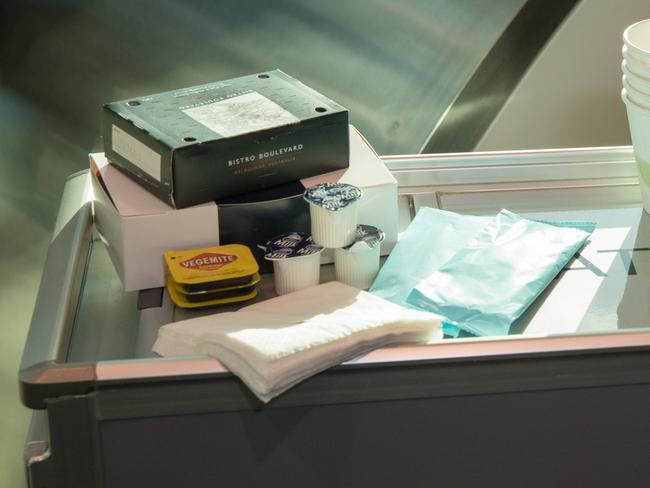
The most ambitious waste reduction targets of any airline in the world; these goals are even more astounding when you look at the stats.
This year more than 40 million flights will take off, each containing a slew of single-use plastic and paper items, from cups and spoons, to sick bags and wrapping for bedding and headsets. Qantas and Jetstar alone (Qantas also owns the budget carrier) carry 50 million passengers annually, which combined creates more than 30,000 tonnes of waste. That’s a comparable weight to 80 747 jumbos. Makes you feel queasy, right?
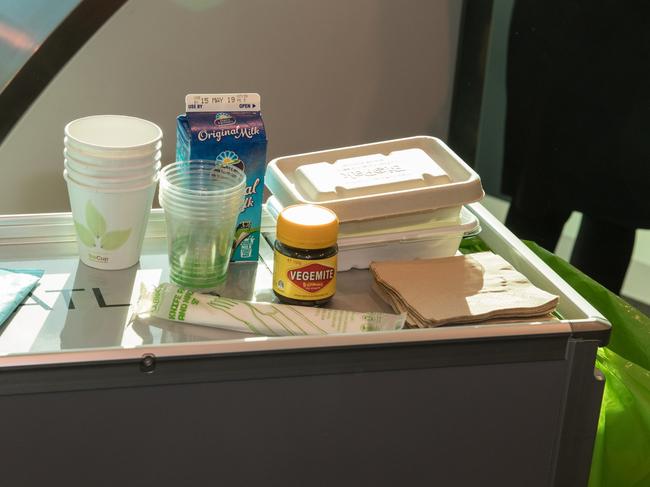
Thankfully, it’s not only Qantas on a mission to go green. Last month, on Earth Day no less, Etihad made history by landing the world’s first plastic-free ultra-long-haul in Brisbane; December saw the world’s first plastic-free flight in January (courtesy of Portuguese carrier, Hi Fly); and airlines including Virgin Australia, Air New Zealand, Cathay Pacific, Singapore Airlines and America’s three largest airlines (Delta, American and United) have all recently taken steps to replace plastic with renewable or biodegradable alternatives. In short, it’s clear that in the airline word, eco is in — and about time too.
As environmental activism transcends trendiness, the burgeoning sustainable travel movement parallels the cultural shift around plastic consumption and waste. It’s no coincidence that last year Collins Dictionary chose “single-use” as its word of the year, reflecting the increasing awareness and growing action against plastic pollution. And as the collective consciousness drifts towards adopting more green practices, a new breed of conscious consumer has emerged, and brands — airlines included — have are adapting their business models accordingly to make sure their eco credentials are up to scratch.
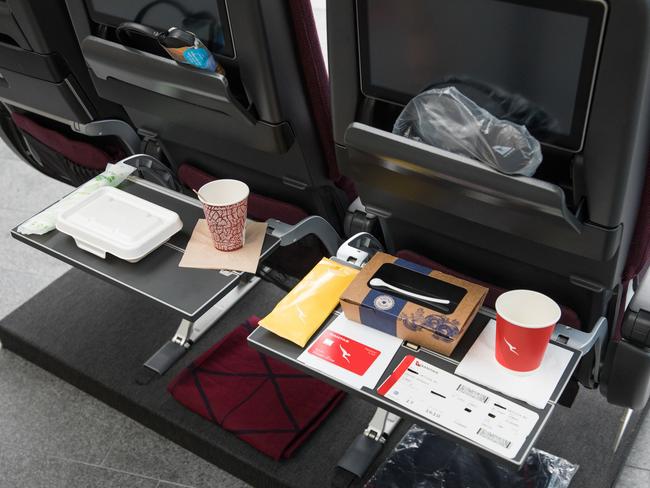
“We’re doing this because our customers are asking us to address our waste,” says Qantas Domestic CEO, Andrew David, matter-a-factly. “We’re doing it because the cabin crew see this waste every day and they want it eliminated … this is the right thing to do.
“This morning’s flight is a huge milestone in that journey … it’s about testing our products, refining the waste process, and getting feedback from our customers. We want to give customers the same level of service they currently enjoy, but without the amount of waste that comes with it.”
“It’s a critical part of the bigger picture for us at Qantas,” Andrew Parker, Qantas group executive government and sustainability, adds. “We think this is one of Australia’s biggest single waste reduction initiatives. Watch this space — from today we think big things will grow.”
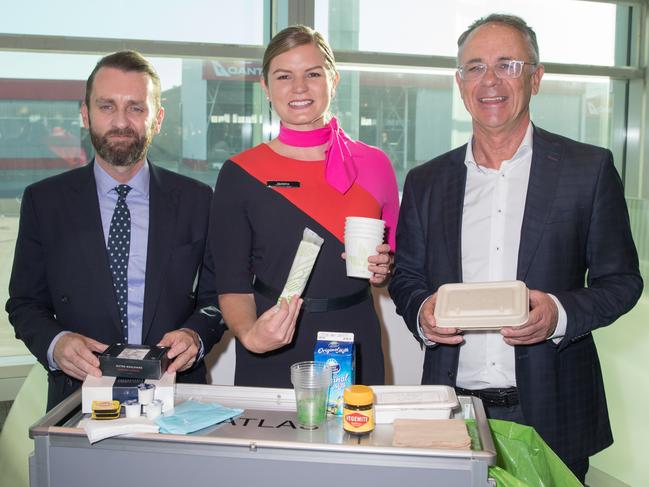
The waste management begins before we even board. Check-in bag tags are made from rubber and are reusable. Yep, you read right, reusable, which means an end to those annoying stickers that are nigh on impossible to peel off. Ingenious. Same with boarding passes — no paper here. Instead, everyone receives their boarding passes on their smartphones.
However, brief nit-picking: while I may have missed it, I couldn’t see a “recycle” bin at the actual gate. And when I went to re-fill my reusable water bottle (I’m a good boy) before boarding, there was no water fountain to be found. Just saying.
Once onboard everything is pretty much same-same until the food and drink service commences. About 1000 single use plastic items were substituted with sustainable alternatives, or removed altogether from the flight, including individually-packaged servings of spreads like Vegemite and milk.
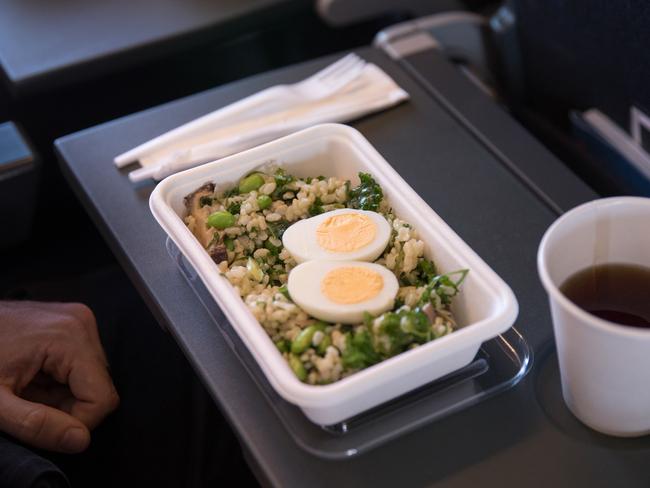
When my I receive my breakfast choice (a grain salad bowl) I’m surprised at how sturdy the container is. Ditto with the cutlery. I’m similarly amazed to discover that both (bar the recyclable plastic lid on the container, which is also soon to be replaced) are made from renewable and responsibly-sourced plant-based material, which is 100 per cent compostable. Even the wrapper covering the cutlery is non-plastic and environmentally-friendly. And all of this has been manufactured by homegrown, Sydney-based company, BioPak.
“Our products all breakdown in around eight weeks - even the cutlery,” says BioPak CEO, Gary Smith. “In fact, in order to be certified compostable they have to breakdown in 180 days.
“The path that Qantas is going down is really holistic. It’s not just about going plastic free, it’s about going entirely waste free. And they’re not doing it for propriety or PR purposes. As our national carrier, they recognise they have a responsibly to create change.”
At the end of the meal service, cabin crew collect the waste products for recycling, items for recuse, and items for recycling, in multiple waste streams, all in biodegradable bags, of course. The waste items will be turned into compost that will be then used within gardens and farms across the country. A happy thought indeed.
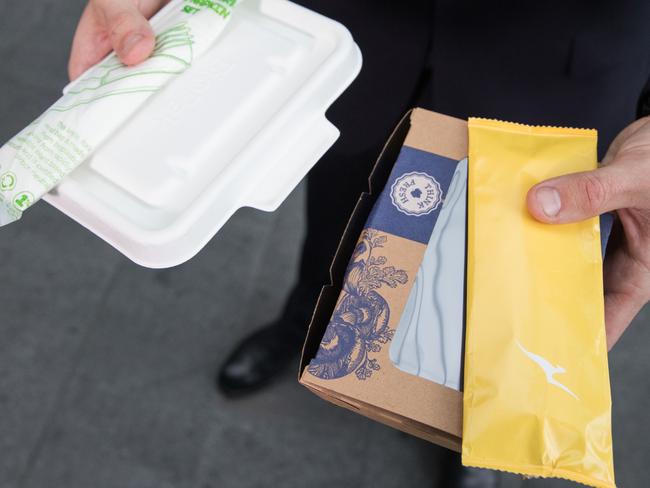
Landing in Adelaide, I discover that this flight would typically produce 34kg of waste, which we’ve saved. Yay! But this is only the very tip of a vast waste iceberg, especially when compared with the airline’s next target: an eradication of all plastic on planes by the end of 2020. A move which will require replacing more than 45 million cups, 30 million cutlery sets and four million headrest covers with sustainable alternatives.
With 100,000 flights taking off each day around the world and, last year, commercial aircraft carrying nearly four billion passengers (this figure is set to double again in less than 20 years) the potential to make a difference is clearly enormous. Let’s just hope that the other major airline players follow suit.
For more travel news and inspiration sign up to Escape’s newsletter.
EMAIL MISTAKE ALMOST BLEW QANTAS’ BIGGEST SECRET


